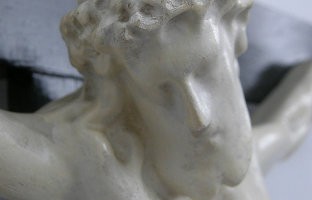The memory of God
The memory of kings and heroes, of nations, tribes and cities, has always seemed worth preserving: "If I forget you, O Jerusalem, let my right hand wither! Let my tongue cleave to the roof of my mouth, if I do not remember you." But it is the fate of most individuals to be assimilated to a collective past—like the bones reburied in the communal ossuaries of rural Greece or the ancestor tablets in a Chinese family shrine. Gradually, if not all at once, the generations pass away.
We're not happy about this slow dissolve. The anxiety to prevent it created the scrapbooks and diaries of pre-Facebook times and now swells the profiles of the 800 million plus Facebook subscribers with their names and faces, likes and dislikes, pets, politics and passing moods. But even with all the technology at our disposal, how can we be sure that the memories worth saving will be safely kept?
I remember when I was nine years old walking around my neighborhood in New York City and looking at things that wanted to be looked at—a glistening iron fence around a playground, earthworms surfaced after a rain, the Good Humor man with his three-wheeled truck, commuters emerging from the subway, the giant barrel outside the Romanian Pickle Works—and trying to retain it all. I was just narcissistic enough to imagine that the real-time "I am a camera" record of a nine-year-old girl's inner life would be universally fascinating. Yet when I grew up and became a mother, it was my children's experiences I wanted to record.





